
Find Help
More Items From Ergsy search
-

Can diet affect eczema?
Relevance: 100%
-
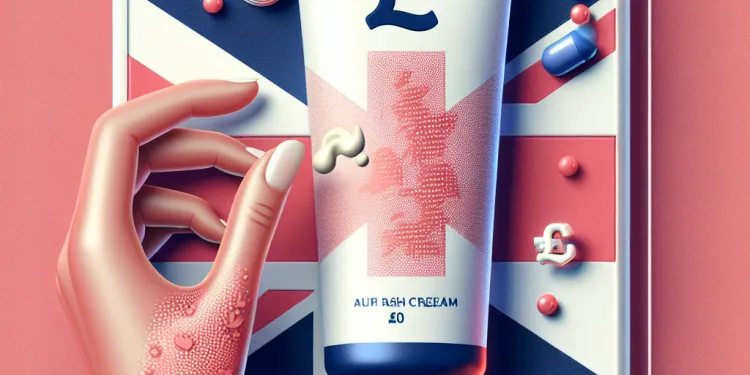
Is there a cure for eczema?
Relevance: 72%
-

Is eczema contagious?
Relevance: 69%
-

Are there any home remedies for eczema?
Relevance: 67%
-

Managing and treating your child's eczema
Relevance: 67%
-

What treatments are available for eczema?
Relevance: 66%
-
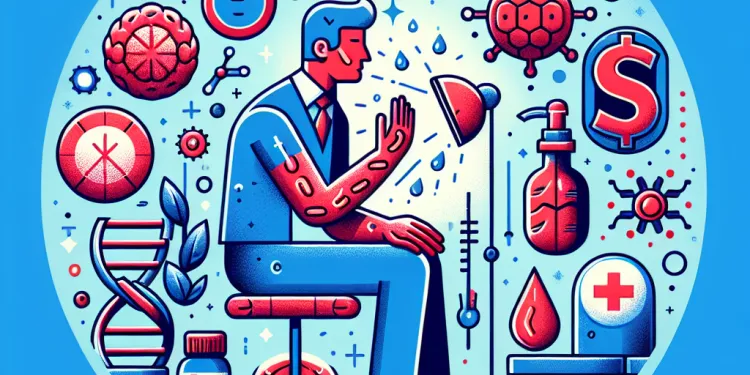
What causes eczema?
Relevance: 66%
-

What is eczema? General Information
Relevance: 66%
-

How can I prevent eczema flare-ups?
Relevance: 66%
-

Who is at risk of developing eczema?
Relevance: 65%
-

What are the main types of eczema?
Relevance: 65%
-
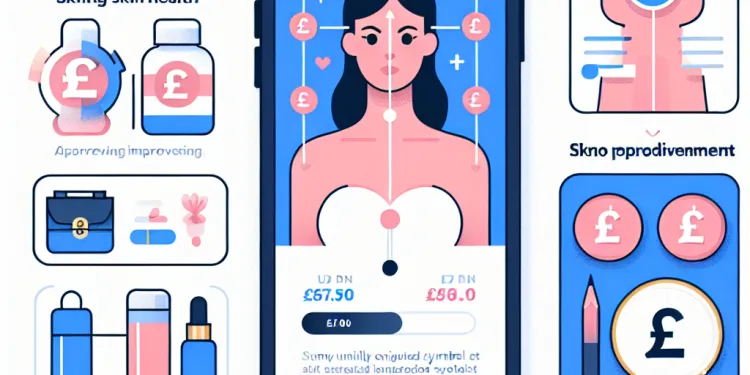
Can eczema improve with age?
Relevance: 65%
-

Factors that trigger eczema in your child
Relevance: 65%
-
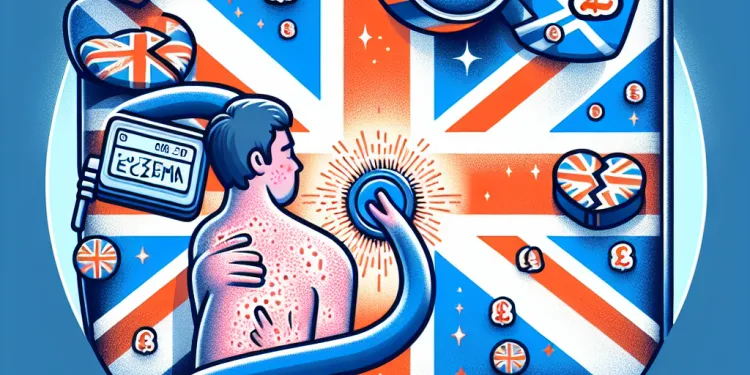
How can eczema be diagnosed?
Relevance: 63%
-

Eczema - Your child's appointment | Dermatology | Paediatrics
Relevance: 62%
-

Can dust mites cause asthma and eczema?
Relevance: 54%
-

What are common symptoms of eczema?
Relevance: 45%
-

How does weather affect eczema?
Relevance: 44%
-

What is the DASH diet?
Relevance: 41%
-
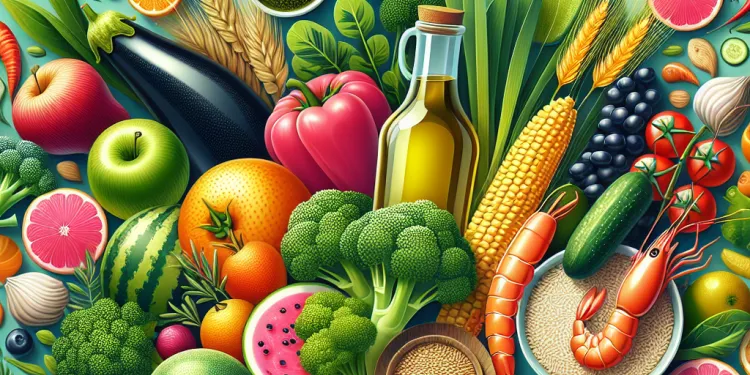
Understanding the Benefits of the Mediterranean Diet
Relevance: 38%
-
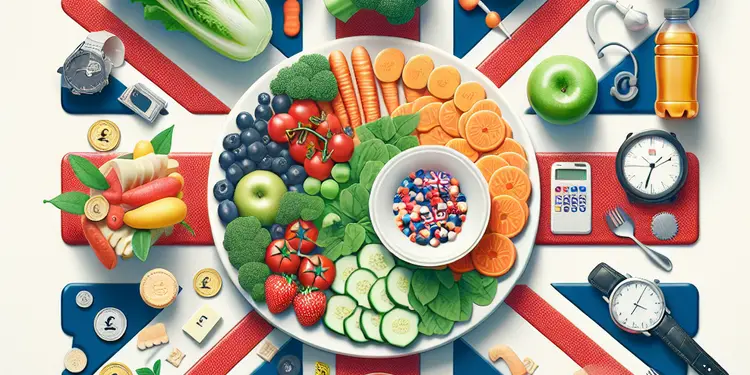
Can a low-fat diet be unhealthy?
Relevance: 38%
-

Can diet affect psoriasis?
Relevance: 38%
-

Can diet affect tinnitus?
Relevance: 38%
-

Can diet affect asthma?
Relevance: 37%
-

Can diet impact BPH?
Relevance: 37%
-

Can diet affect ADHD symptoms?
Relevance: 36%
-

Why is fat important in my diet?
Relevance: 36%
-
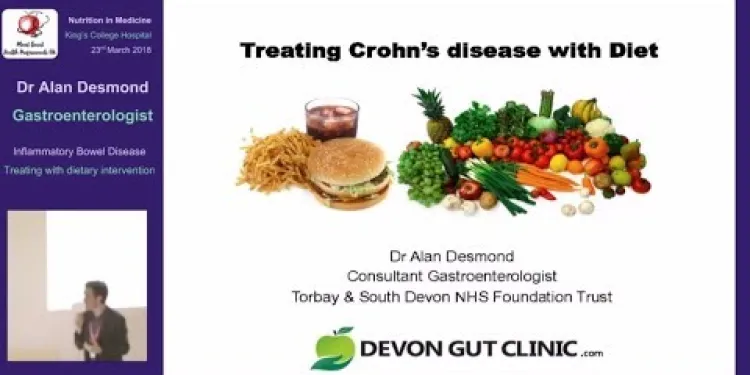
What is the best diet for Crohn’s disease?
Relevance: 36%
-
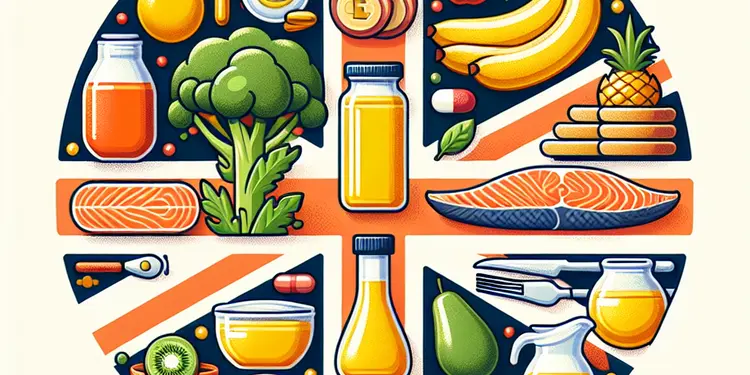
What is the omega-6 to omega-3 ratio in diets?
Relevance: 35%
-

Is diet linked to the rise in bowel cancer?
Relevance: 35%
-

Can diet influence cortisol levels?
Relevance: 35%
-

Does your diet affect IBS?
Relevance: 34%
-

What is the role of sugar in a balanced diet?
Relevance: 34%
-

Can diet impact postnatal depression?
Relevance: 34%
-
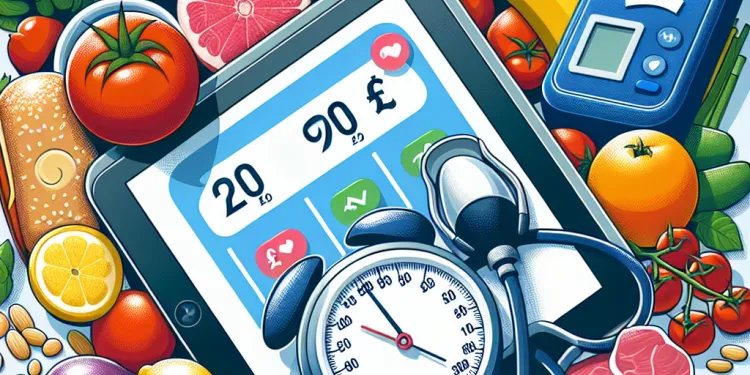
How does diet affect blood pressure?
Relevance: 34%
-

Can junk food be part of a balanced diet?
Relevance: 34%
-
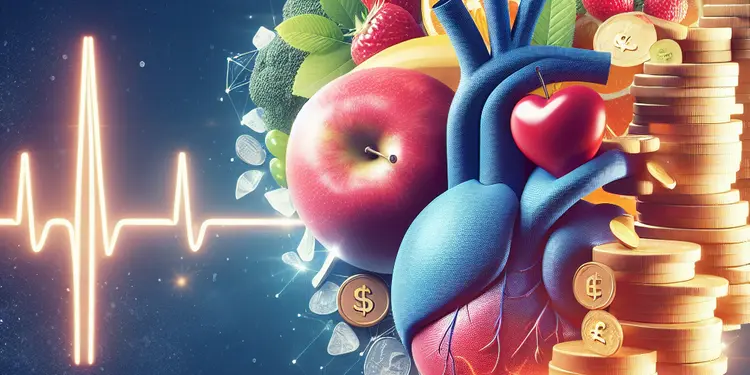
What is the role of diet in managing heart failure?
Relevance: 34%
-

How does diet affect tooth decay?
Relevance: 33%
-

Coeliac Disease: The gluten free diet
Relevance: 33%
-

Record Number of Brits Embrace Plant-Based Diets for Wellbeing
Relevance: 33%
Understanding Eczema
Eczema, also known as atopic dermatitis, is a chronic skin condition characterized by inflamed, itchy, and red patches of skin. It is a common condition affecting both children and adults, often linked to genetic, environmental, and immune system factors. While eczema is not contagious, it can significantly impact the quality of life for sufferers. Managing eczema typically involves a combination of skincare routines, medication, and identifying triggers that may worsen symptoms.
The Role of Diet in Eczema Management
There is growing interest in understanding the role of diet in managing eczema symptoms. While diet alone cannot cure eczema, certain foods and dietary habits may influence the severity and frequency of flare-ups for some people. In the UK, healthcare professionals often suggest exploring dietary changes as part of a comprehensive eczema management plan when conventional treatments are insufficient.
Potential Trigger Foods
Some individuals with eczema might observe a link between certain foods and their skin condition. Common potential trigger foods include dairy, eggs, nuts, soy, gluten, and seafood. For some people, these foods may provoke an allergic reaction or sensitivity that triggers an eczema flare-up. It is important to note, however, that food triggers can vary significantly from person to person.
Elimination Diets and Testing
An elimination diet is a strategy that involves removing suspected trigger foods from a person's diet for a period of time to see if symptoms improve. If improvement is noticed, foods are then gradually reintroduced one at a time to identify specific triggers. It is crucial to undertake such diets under the guidance of a healthcare professional or a dietitian to ensure nutritional balance and safety.
The Role of Inflammation and Gut Health
Recent research suggests a link between gut health, inflammation, and skin conditions like eczema. A diet high in processed foods and sugars may exacerbate inflammation in the body, potentially worsening eczema symptoms. Conversely, a diet rich in anti-inflammatory foods, such as fruits, vegetables, whole grains, and omega-3 fatty acids, may help reduce inflammation and improve skin health. Probiotics and prebiotics, which support a healthy gut microbiome, have also been studied for their potential benefits in eczema management.
Consulting Healthcare Professionals
Before making any significant dietary changes, individuals with eczema should consult with healthcare professionals, such as a GP or a registered dietitian. These experts can provide personalized advice and ensure that dietary modifications do not inadvertently result in nutritional deficiencies. They can also help identify any underlying allergies or conditions that may be influencing eczema symptoms.
Conclusion
While diet alone is not a cure for eczema, it can play a supportive role in managing symptoms for some people. Identifying and avoiding trigger foods, emphasizing anti-inflammatory foods, and supporting gut health are potential strategies that may aid in reducing eczema flare-ups. However, it remains essential to approach dietary changes carefully and with professional support to maintain overall health and well-being.
Understanding Eczema
Eczema is a skin problem. It makes skin red, itchy, and sore. Both kids and grown-ups can have it. Eczema is not contagious, so you cannot catch it from someone else. It often runs in families and can be triggered by things around you or problems with the immune system. To help eczema, people often use special skin lotions, medicine, and try to avoid things that make it worse.
The Role of Diet in Eczema Management
Some people think food can make eczema better or worse. Food can’t cure eczema, but some foods might make flare-ups less or more frequent. In the UK, doctors sometimes suggest changing what you eat to help manage eczema when other treatments are not enough.
Potential Trigger Foods
Some people with eczema might find that certain foods make their skin worse. These might be dairy, eggs, nuts, soy, gluten, and seafood. For some, these foods can cause a reaction that makes eczema flare up. What triggers eczema can be different for each person.
Elimination Diets and Testing
An elimination diet means you stop eating foods you think are causing problems, to see if your skin gets better. If it does, you add the foods back one by one to find the trigger. It’s important to do this with help from a doctor or dietitian to stay healthy and safe.
The Role of Inflammation and Gut Health
Some research says that the health of your gut (stomach and intestines) might be linked to eczema. Foods like junk food and sweets might make skin problems worse. Eating fruits, vegetables, whole grains, and fish can help. Probiotics and prebiotics, which are good for your gut, might also help with eczema.
Consulting Healthcare Professionals
Before changing what you eat, talk to a doctor or dietitian. They can give advice and make sure you still get all the nutrients you need. They can also check for any allergies or health issues that might affect eczema.
Conclusion
Diet alone won’t cure eczema, but it can help manage it for some people. Finding and avoiding foods that trigger eczema can help. Eating foods that reduce inflammation and caring for your gut might also be good. Always make dietary changes carefully and with help from professionals to stay healthy.
Frequently Asked Questions
Can diet impact eczema symptoms?
Yes, certain foods can trigger or exacerbate eczema symptoms in some individuals.
What foods are commonly known to trigger eczema?
Common triggers include dairy, eggs, nuts, soy, wheat, and seafood.
Can an elimination diet help with eczema?
An elimination diet, under medical supervision, can help identify potential food triggers for eczema.
Are there any foods that can help reduce eczema symptoms?
Foods rich in omega-3 fatty acids like fish, as well as anti-inflammatory foods, may help reduce symptoms.
Should I consult a dermatologist or a dietitian for eczema diet advice?
It's often helpful to consult both a dermatologist and a dietitian for comprehensive management of eczema.
Is eczema related to food allergies?
Eczema can be associated with food allergies, but not all eczema cases are directly linked to food.
Can probiotics help with eczema?
Some studies suggest probiotics might help improve eczema symptoms, but more research is needed.
Does sugar worsen eczema?
Excessive sugar can lead to inflammation, which might aggravate eczema symptoms for some people.
Is gluten a common eczema trigger?
While gluten can be a trigger for some, it is not a common issue for all eczema sufferers.
Can hydration and water intake affect eczema?
Staying well-hydrated can help maintain skin moisture and potentially reduce eczema flares.
Are there specific diets recommended for eczema?
There is no one-size-fits-all eczema diet, but anti-inflammatory and balanced diets are often recommended.
Can spicy foods trigger eczema?
For some individuals, spicy foods can exacerbate eczema symptoms.
Is caffeine a potential trigger for eczema?
Caffeine has not been widely linked to eczema, but individual reactions can vary.
How do food sensitivities differ from allergies in relation to eczema?
Food sensitivities may cause delayed eczema reactions, while allergies can trigger immediate flares.
Can probiotics in fermented foods benefit eczema sufferers?
Fermented foods with probiotics might help some individuals, but results can vary.
How can keeping a food diary help manage eczema?
A food diary helps track potential triggers and identify patterns that correlate with eczema flares.
Do omega-3 supplements benefit those with eczema?
Omega-3 supplements may reduce inflammation and help manage symptoms, but consulting a doctor is advisable.
Are there vitamins that support skin health for eczema?
Vitamins D, E, and zinc are known to support skin health and may aid eczema management.
Can cooking methods affect eczema symptoms?
Cooking methods like frying might affect inflammation levels, which could impact eczema.
Is there a link between gut health and eczema?
Emerging research suggests a link between gut health and eczema, with diet playing a crucial role.
Can food change eczema symptoms?
Yes, some foods can make eczema worse for some people.
What foods can make eczema worse?
Eczema is a skin problem. It can make your skin red and itchy.
Some foods might make eczema worse. Here are some foods that can do this:
- Milk and dairy foods like cheese
- Eggs
- Nuts
- Wheat
- Soy (found in some sauces and foods)
- Fish
If you think a food makes your eczema worse, try to avoid it. You can also talk to a doctor. They can help you find out which foods might be a problem.
Make sure to keep your skin clean and use cream to stop it from getting too dry.
Some foods can make allergies worse. These foods are milk, eggs, nuts, soy, wheat, and seafood.
Can changing what you eat help with eczema?
Some people get itchy skin called eczema. It can be very uncomfortable.
Sometimes, food might make eczema worse. An elimination diet means you stop eating certain foods to see if it helps.
It's best to talk to a doctor before changing what you eat. They can help you find out what foods might help or hurt your skin.
Tools like food diaries can be helpful. You can write down what you eat and how your skin feels. This helps you see patterns.
If a doctor helps you try an "elimination diet," you stop eating certain foods for a while. This can help find out if any food might be causing eczema to get worse.
Can some foods help with eczema?
Eczema is a skin problem that makes your skin itchy and red. Some foods might help make it feel better.
Here are some tips and tools to help:
- Eating fruits and vegetables can be good for your skin.
- Drink lots of water to keep your skin happy.
- Use a diary to write down what you eat and how your skin feels. This can help you see what foods are good or bad for your eczema.
- Talk to a doctor or nurse. They can give you more advice.
Eating foods that are good for you can help make you feel better. Try eating fish and foods that help fight swelling in the body.
Who should I talk to about what to eat for my eczema?
Do you wonder who can help with your eczema and food? You can talk to a skin doctor or a food expert.
- A skin doctor, called a dermatologist, knows a lot about skin problems like eczema.
- A food expert, called a dietitian, knows a lot about food and how it affects the body.
Here are some things you can do:
- Ask the skin doctor how food can help your skin feel better.
- Ask the food expert which foods might help or bother your skin.
It can be helpful to write down what you eat and how your skin feels after. This can show patterns and help experts give the best advice.
It’s often good to see both a skin doctor and a food expert to help take care of eczema.
Can some foods make eczema worse?
Eczema is a skin condition. Sometimes, it can be caused by food allergies. But not everyone with eczema has food allergies.
Can good bacteria help with itchy skin?
Do you want to know if good bacteria, which are tiny living things in your belly, can help with itchy, dry skin called eczema?
Here are some tips that might help:
- Ask a doctor: A doctor can tell you if these good bacteria are good for you.
- Try probiotics: These are foods or pills with good bacteria. They might help your skin.
- Eat yogurt: Yogurt has good bacteria and is easy to eat.
Some studies say friendly bacteria might help make eczema better. But we need to learn more.
Does sugar make eczema worse?
Eczema is a skin problem. It can make your skin red, itchy, and dry.
Sugar is in sweet foods like candy and soda.
Some people think sugar can make eczema worse.
If you think sugar is a problem, try eating less sugar. See if it helps your skin feel better.
Talk to a doctor or nurse if you need help with eczema.
You can also ask a grown-up or friend to help you read more about eczema.
Too much sugar can make your skin sore. This can make eczema worse for some people.
Can gluten make eczema worse?
Gluten is found in foods like bread, pasta, and cereal. For some people, eating gluten can make their eczema worse. If you think gluten makes your skin itchy, talk to a doctor.
Here are some tips that might help:
- Keep a food diary. Write down what you eat and how your skin feels.
- Try gluten-free foods if you think gluten is a problem.
- Ask a doctor or nurse for advice.
Remember, everyone is different. What helps one person might not help another. Be patient and find what works for you.
Gluten can cause problems for some people, but not everyone with eczema has issues with it.
Does drinking water help with eczema?
Drinking enough water helps keep your skin soft and might stop eczema from getting worse.
What foods can help if you have eczema?
Some foods can make your skin feel better if you have eczema. It's a good idea to eat:
- Fruits and vegetables like apples, carrots, and broccoli.
- Healthy fats like those in fish and nuts.
If certain foods make your skin itchy, try eating less of them. Keep a food diary to track what works for you.
For more help, talk to a doctor or a diet expert.
There is no one perfect diet for everyone with eczema. But, eating foods that reduce swelling and keeping a balanced diet can help.
Can spicy foods make eczema worse?
Eczema is a skin problem that makes skin red and itchy. Spicy foods like hot peppers might make eczema worse for some people. If you think spicy foods hurt your skin, try eating them less. You can talk to a doctor to know more. Using soft clothes and gentle soap can help your skin feel better. Drink lots of water to keep skin soft.For some people, eating spicy foods can make their eczema worse.
Can caffeine make eczema worse?
People do not usually think caffeine causes eczema. But everyone is different.
What is the difference between food sensitivities and allergies for eczema?
Sometimes, what we eat can make our skin itchy and red. This can happen slowly or very fast.
Do good bacteria in fermented foods help people with eczema?
When foods are made to last longer, they sometimes get healthy bacteria. These foods are called fermented foods.
People with eczema have itchy and red skin. We want to know if these healthy bacteria can help their skin feel better.
If you have eczema, it might be good to try some fermented foods. But it is always good to talk to a doctor first.
There are also helpful tools to learn more, like easy-to-read books or talking to a friend about it.
Fermented foods can be good for some people because they have healthy bacteria. But they don't work the same for everyone.
How can a food diary help manage eczema?
Writing down what you eat can help you see which foods make your eczema better or worse.
Try to write down what you eat every day. Note any new foods.
If your skin gets itchy, look back at your list. See if a certain food might be the cause.
You can use pictures or drawings to help remember. Ask someone you trust to help you write things down.
A food diary can help you find out if certain foods cause skin problems, like eczema. It can also help you see patterns in what you eat and your skin's reaction.
Do omega-3 pills help with eczema?
Omega-3 pills are a type of vitamin. They come from fish. Some people take them to help their skin.
Eczema is a skin problem. It makes skin red and itchy. People want to know if omega-3 pills can help with eczema.
Try these tips to learn more:
- Talk to a doctor or nurse. They can help you understand if omega-3 is good for you.
- Use picture books or videos about eczema and omega-3 to learn easily.
Omega-3 supplements can help with swelling and make you feel better. It is a good idea to talk to a doctor before taking them.
Can vitamins help your skin if you have eczema?
If you have eczema, some vitamins can help your skin.
Vitamin D, Vitamin E, and Vitamin C are good for your skin. They can help make your skin feel better.
It's also important to eat healthy foods, drink water, and use creams for your skin.
Remember to talk to a doctor before taking any vitamins.
Vitamins D, E, and zinc help keep your skin healthy. They can also help if you have eczema, which makes your skin itchy and sore.
Can the way we cook make eczema worse?
Cooking food by frying can change how it affects your body. It might cause more swelling on the skin, which can make eczema worse.
Is there a connection between tummy health and itchy skin (eczema)?
Your tummy is where food goes after you eat. It has good germs that keep you healthy. Sometimes, if your tummy is not healthy, it can make your skin itchy.
If you think your tummy is not healthy, talk to a doctor. They can help you feel better.
Here are some tools that might help:
- Eat fruits and vegetables. They are good for your tummy.
- Drink plenty of water. Water helps your tummy work well.
- Ask a grown-up if you can take a probiotic. This is a special vitamin for your tummy.
New studies show that your tummy health might affect eczema. What you eat is very important for this.
Useful Links
This website offers general information and is not a substitute for professional advice.
Always seek guidance from qualified professionals.
If you have any medical concerns or need urgent help, contact a healthcare professional or emergency services immediately.
Some of this content was generated with AI assistance. We’ve done our best to keep it accurate, helpful, and human-friendly.
- Ergsy carfully checks the information in the videos we provide here.
- Videos shown by Youtube after a video has completed, have NOT been reviewed by ERGSY.
- To view, click the arrow in centre of video.
- Most of the videos you find here will have subtitles and/or closed captions available.
- You may need to turn these on, and choose your preferred language.
- Go to the video you'd like to watch.
- If closed captions (CC) are available, settings will be visible on the bottom right of the video player.
- To turn on Captions, click settings .
- To turn off Captions, click settings again.
More Items From Ergsy search
-

Can diet affect eczema?
Relevance: 100%
-

Is there a cure for eczema?
Relevance: 72%
-

Is eczema contagious?
Relevance: 69%
-

Are there any home remedies for eczema?
Relevance: 67%
-

Managing and treating your child's eczema
Relevance: 67%
-

What treatments are available for eczema?
Relevance: 66%
-

What causes eczema?
Relevance: 66%
-

What is eczema? General Information
Relevance: 66%
-

How can I prevent eczema flare-ups?
Relevance: 66%
-

Who is at risk of developing eczema?
Relevance: 65%
-

What are the main types of eczema?
Relevance: 65%
-

Can eczema improve with age?
Relevance: 65%
-

Factors that trigger eczema in your child
Relevance: 65%
-

How can eczema be diagnosed?
Relevance: 63%
-

Eczema - Your child's appointment | Dermatology | Paediatrics
Relevance: 62%
-

Can dust mites cause asthma and eczema?
Relevance: 54%
-

What are common symptoms of eczema?
Relevance: 45%
-

How does weather affect eczema?
Relevance: 44%
-

What is the DASH diet?
Relevance: 41%
-

Understanding the Benefits of the Mediterranean Diet
Relevance: 38%
-

Can a low-fat diet be unhealthy?
Relevance: 38%
-

Can diet affect psoriasis?
Relevance: 38%
-

Can diet affect tinnitus?
Relevance: 38%
-

Can diet affect asthma?
Relevance: 37%
-

Can diet impact BPH?
Relevance: 37%
-

Can diet affect ADHD symptoms?
Relevance: 36%
-

Why is fat important in my diet?
Relevance: 36%
-

What is the best diet for Crohn’s disease?
Relevance: 36%
-

What is the omega-6 to omega-3 ratio in diets?
Relevance: 35%
-

Is diet linked to the rise in bowel cancer?
Relevance: 35%
-

Can diet influence cortisol levels?
Relevance: 35%
-

Does your diet affect IBS?
Relevance: 34%
-

What is the role of sugar in a balanced diet?
Relevance: 34%
-

Can diet impact postnatal depression?
Relevance: 34%
-

How does diet affect blood pressure?
Relevance: 34%
-

Can junk food be part of a balanced diet?
Relevance: 34%
-

What is the role of diet in managing heart failure?
Relevance: 34%
-

How does diet affect tooth decay?
Relevance: 33%
-

Coeliac Disease: The gluten free diet
Relevance: 33%
-

Record Number of Brits Embrace Plant-Based Diets for Wellbeing
Relevance: 33%


